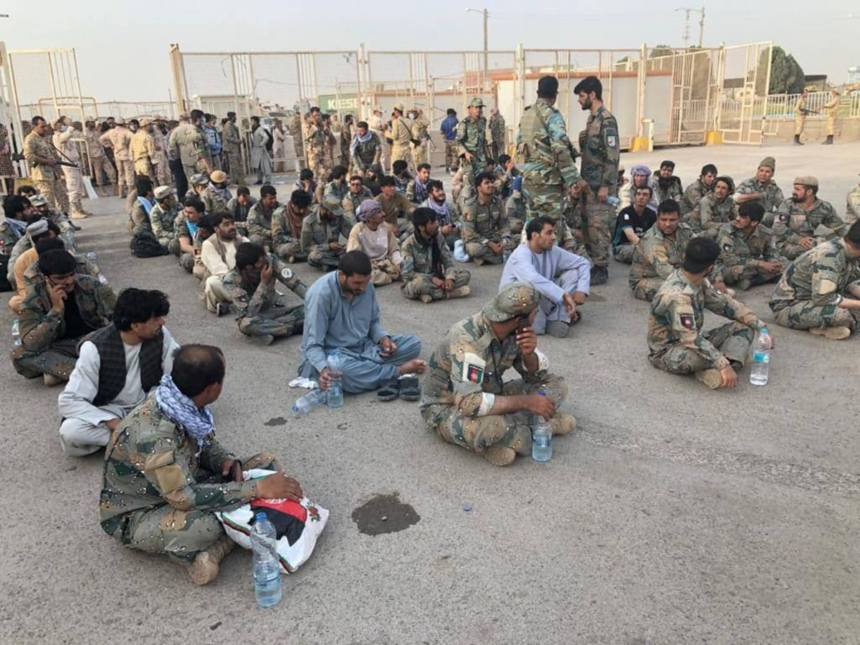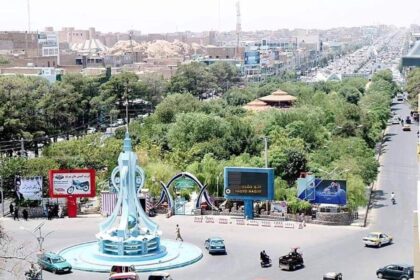RASC News Agency: In a revelation that has stirred deep alarm among Western intelligence circles and human rights advocates, The Telegraph has reported that senior officials from Iran’s Islamic Revolutionary Guard Corps (IRGC) have formally requested the Taliban to provide a confidential list of nearly 25,000 former Afghanistani military personnel who collaborated with British forces during the two-decade NATO mission in Afghanistan. The requested list reportedly contains the names of former army soldiers, intelligence operatives, and members of elite special forces, all of whom played roles in supporting British-led military and intelligence operations prior to the Taliban’s violent return to power in 2021. While the Iranian authorities have not publicly stated the purpose of the request, informed sources suggest that Tehran’s objective is to identify, surveil, and potentially detain individuals suspected of links to the United Kingdom’s foreign intelligence service, MI6. Analysts warn this could serve as a covert pressure tactic in Iran’s future negotiations with Western governments, particularly amid the deadlock over the country’s nuclear program.
According to sources cited by The Telegraph, the IRGC has established a specialized internal committee tasked with tracking down individuals who may have served as assets or informants for British intelligence. The implications are chilling: at least one former Afghanistani soldier, whose name appeared on the list, was reportedly arrested in Iran, deported to Taliban-controlled Afghanistan, and detained by Taliban intelligence officers upon arrival at the Herat border, after which he was transferred to an undisclosed location. This sequence of events provides the clearest indication yet of a tactical intelligence partnership between Tehran and the Taliban, raising urgent questions about the safety of thousands of exiled Afghanistani personnel. This intelligence maneuver by the IRGC comes against the backdrop of Iran’s newly recalibrated and highly controversial policy toward Afghanistani refugees. Earlier this year, Iranian authorities revoked the legality of “census cards” that had previously granted temporary protection to migrants. In their place, Tehran introduced a new program specifically targeting former Afghanistani military personnel, offering them a six-month temporary residency permit reportedly renewable for three years on the condition that they submit verifiable documentation of their military service.
The policy triggered an immediate surge in registrations, as thousands of former soldiers fleeing Taliban persecution flocked to registration centers in cities including Tehran, Mashhad, and Zahedan. Many submitted comprehensive personal files, including military IDs, unit records, and employment histories data now potentially in the hands of Iranian intelligence services. Yet this initiative, initially framed as a gesture of humanitarian protection, is now drawing sharp scrutiny. Military observers, refugee rights groups, and exiled Afghanistani networks have described the campaign as “opaque, coercive, and deeply suspicious,” warning that Iran’s real intent may be surveillance, extraction of intelligence, or even eventual extradition of former military personnel to the Taliban a regime known for exacting brutal retribution against former members of the Afghanistan’s National Security Forces (ANSF).
Despite months having passed since the scheme was launched, Iranian officials have provided no public clarity on how many applicants have been granted legal residency, nor have they guaranteed safeguards for the sensitive personal information handed over by these asylum seekers. The absence of transparency, combined with the IRGC’s intelligence outreach to the Taliban, has deepened fears that many former Afghanistani defenders already stateless may be weaponized as pawns in Iran’s shadow diplomacy. Crucially, the timing of Iran’s policy shift has not gone unnoticed. The convergence between Tehran’s targeting of ex-military refugees and its request for a list of UK-linked personnel suggests a coordinated, multi-layered effort to exploit vulnerable former allies of the West for geopolitical leverage. As the Taliban grows increasingly dependent on regional powers like Iran and China, its willingness to collaborate in the surveillance, detention, and potential handover of former anti-Taliban forces reveals a chilling betrayal of Afghanistan’s national sovereignty now subjugated to the ambitions of foreign intelligence apparatuses.
The Taliban, having systematically dismantled the professional military infrastructure of the former republic, now appear to be complicit in facilitating Iran’s intelligence dragnet. Their cooperation in identifying and handing over former Afghanistani soldiers many of whom fought to protect their homeland from extremism underscores the regime’s role not as a protector of Afghanistani interests, but as an enabler of foreign repression and regional espionage. As of now, Iran has not responded to repeated calls for transparency, nor has it clarified the legal fate of those ex-soldiers who have registered under its program. Meanwhile, the Taliban remain silent, despite growing evidence of their collusion in these extrajudicial transfers and interrogations.
Human rights observers warn that failure to halt this coordinated persecution of former Afghanistani security personnel will not only endanger thousands of lives, but will also cement a dangerous precedent in which displaced military veterans are hunted across borders not by their enemies, but by regimes they once sought refuge in. Without swift international response and diplomatic pressure, the legacy of Afghanistan’s fallen republic risks being erased its defenders either disappeared under Iranian custody, or handed back to a regime they once fought to resist.






